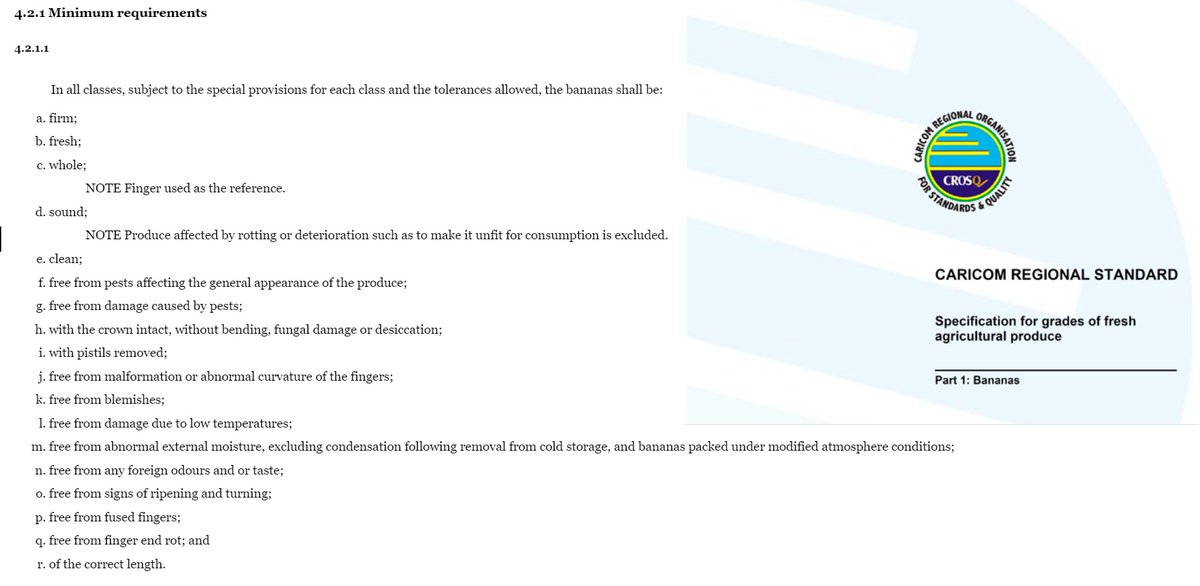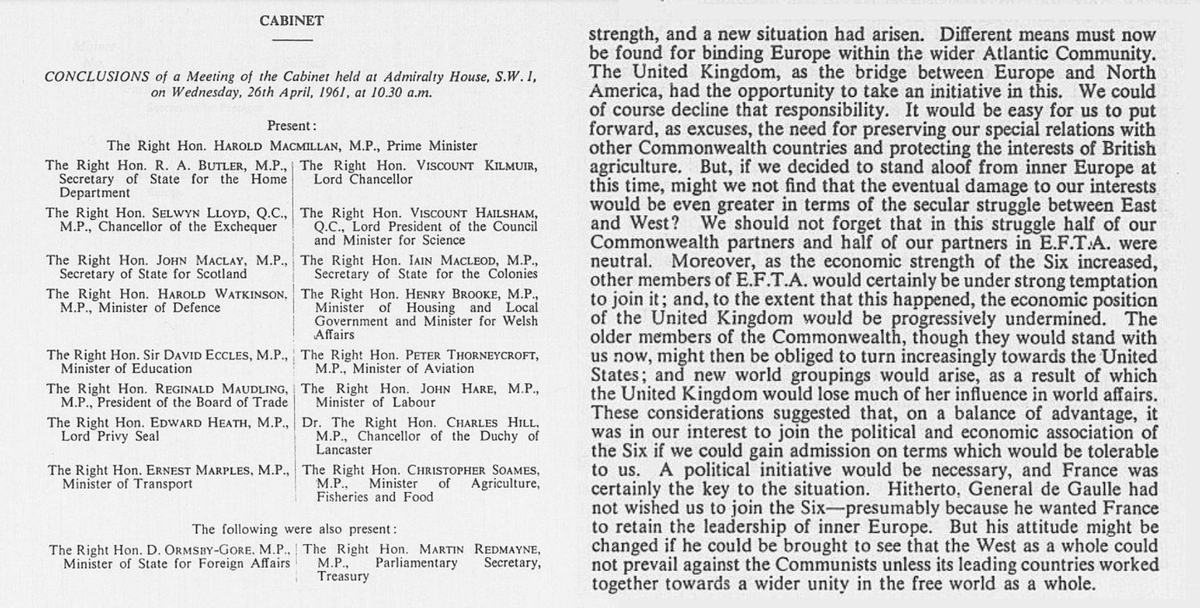
1. Let’s talk Bananas, and explore a different part of the puzzle covered by Alexander’s article. (Thread)
https://twitter.com/FantaAlexx/status/1313042612220297217
2. The truth is, a lot of food is lost between the farm and the retailer for different reasons, and the notorious banana rules are specifically to do with correct storage and aesthetics. 
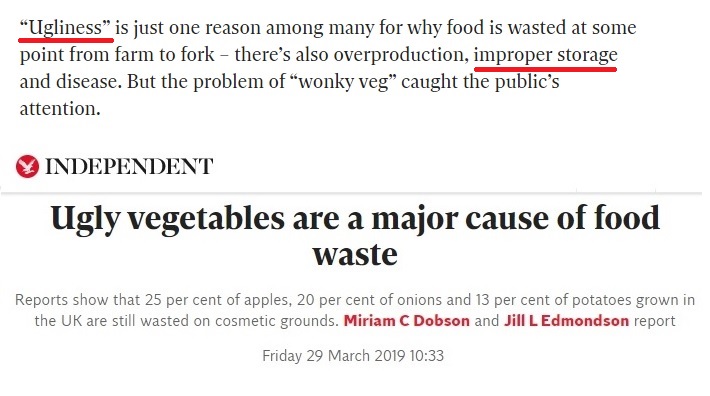
3. I believe some of the banana legislation derives from rules set in 1969 by the Comité interprofessionnel de la banane française, but the origin of the regulations we actually use is a bit more complicated than that. 

4. In 1988, France was supporting an international standard for Bananas at the Codex Committee on tropical fresh fruits and vegetables.
It didn't make any progress because the International Banana Committee claimed the bananas were already good quality.
It didn't make any progress because the International Banana Committee claimed the bananas were already good quality.
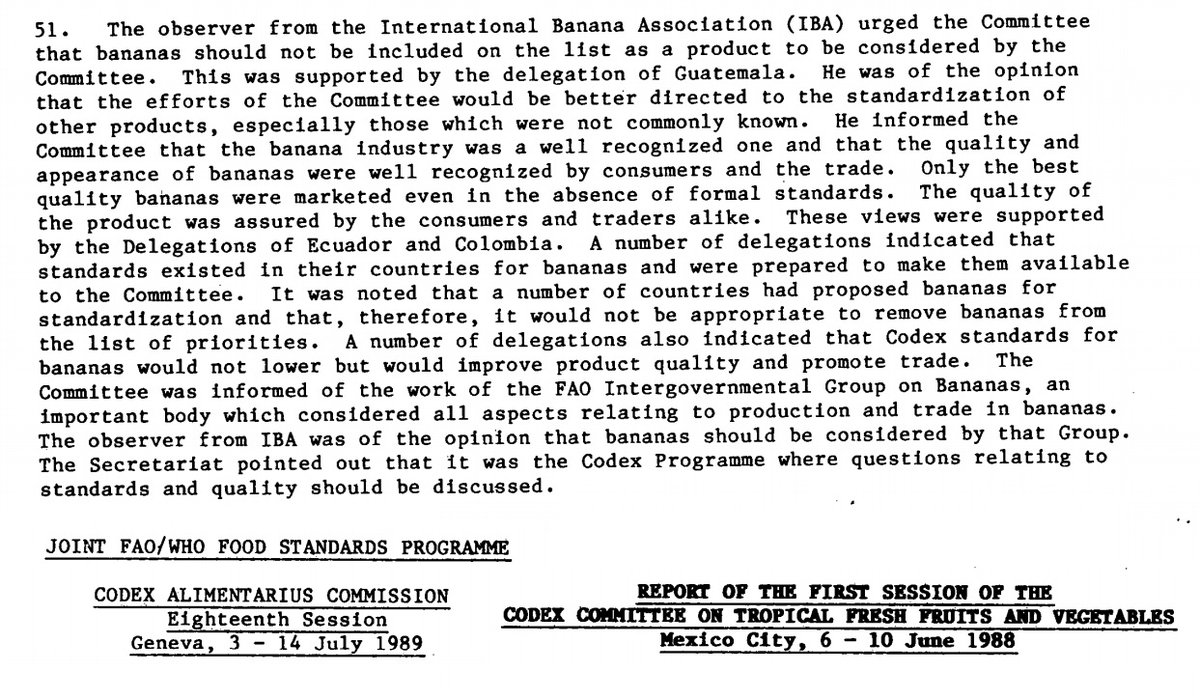
5. But that was going to change, and it is no surprise to find a French company pushing for banana regulation in March 1993.
https://twitter.com/FantaAlexx/status/1313042646902996993
6. And even less surprising to find memberstates sending their laws to the Commission.
https://twitter.com/FantaAlexx/status/1313042652087148546
7. Because in February 1993 the Codex Committee changed their position and gave the go ahead to begin working on banana regulation. 
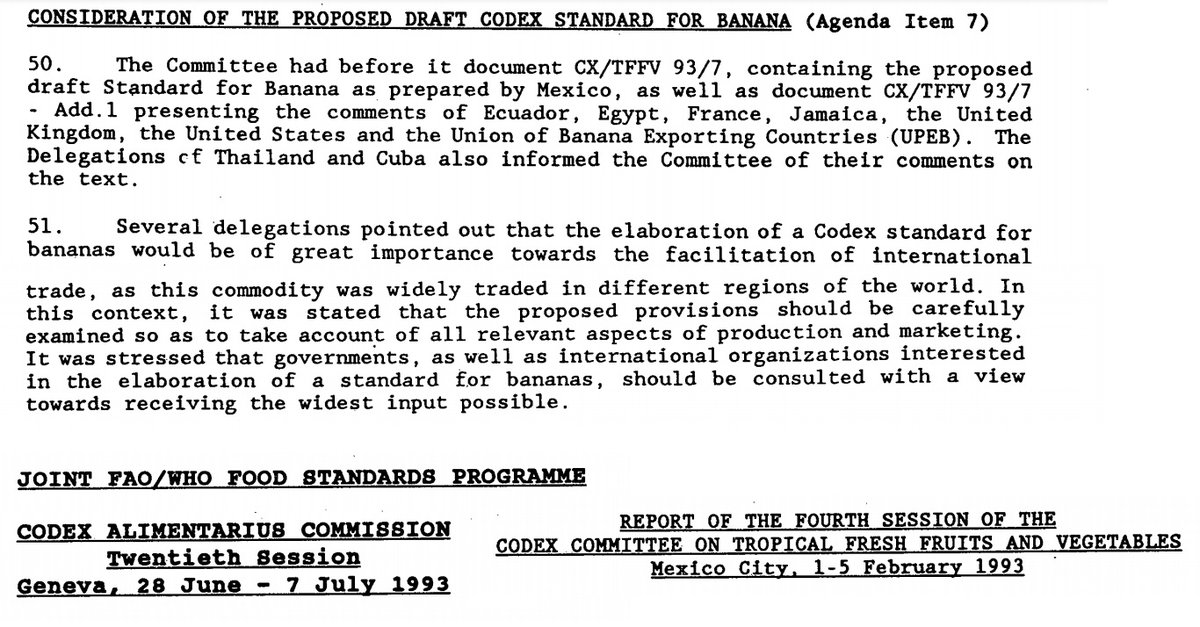
8. It is not, as you’d expect, a French proposal that they begin with, it’s a Mexican proposal. This has discussion of shape, but no reference to abnormal curvature.
(Although this may have been inspired by the original 1980s French proposal)
(Although this may have been inspired by the original 1980s French proposal)
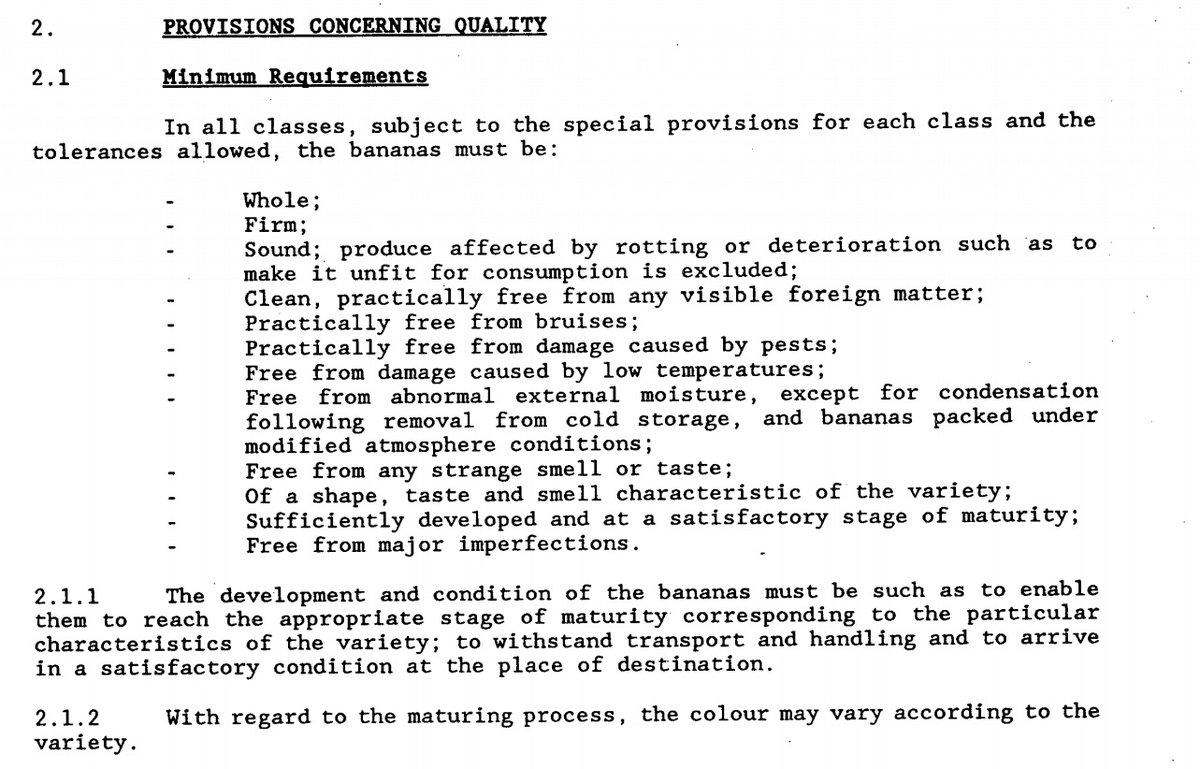
9. I don’t know if the EU French proposal had size requirements
https://twitter.com/FantaAlexx/status/1313042657384566785
11. And after passing the regulation in 1995, the EU were in a position to push through changes, including a simplification of the sizing and the abnormal curvature requirements. 
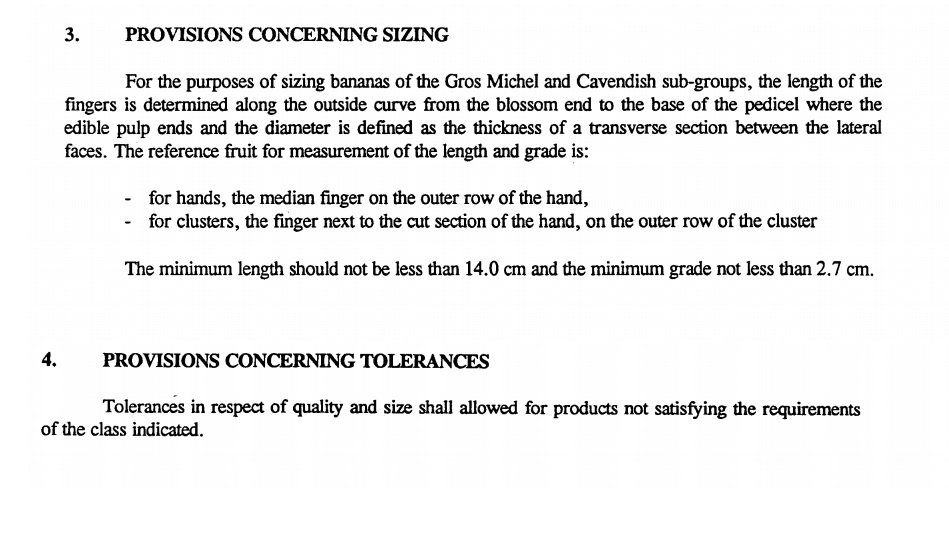
12. Why are they needed? Well each box has to be packed a certain way to ensure the fruit doesn’t get damaged.
Abnormal curvature effects how the bananas fit in their box, and can result in damage to the bananas in transit.
Abnormal curvature effects how the bananas fit in their box, and can result in damage to the bananas in transit.
13. Here is the Mexico proposal quality requirements, the Codex standard quality section and the EU standard quality regulation side by side.
Shape was always considered, it was just more precisely defined now.


Shape was always considered, it was just more precisely defined now.
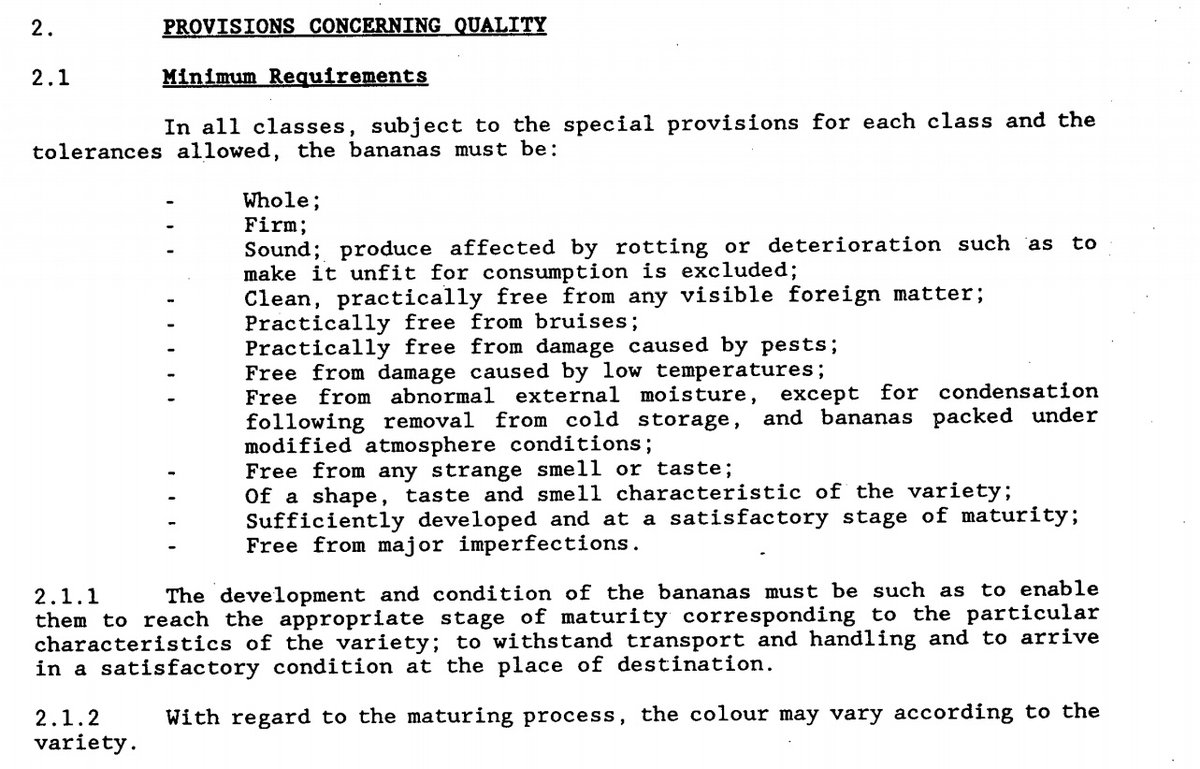
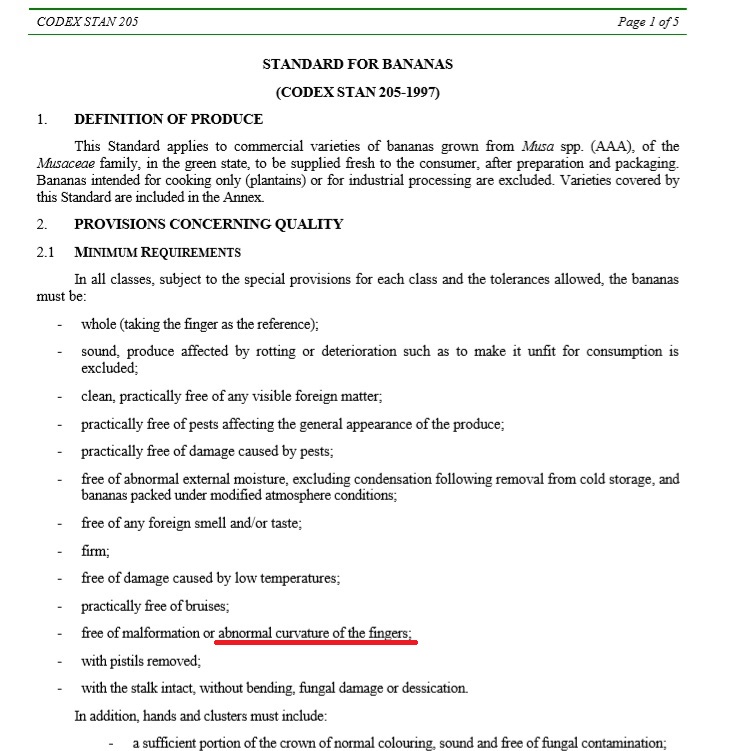
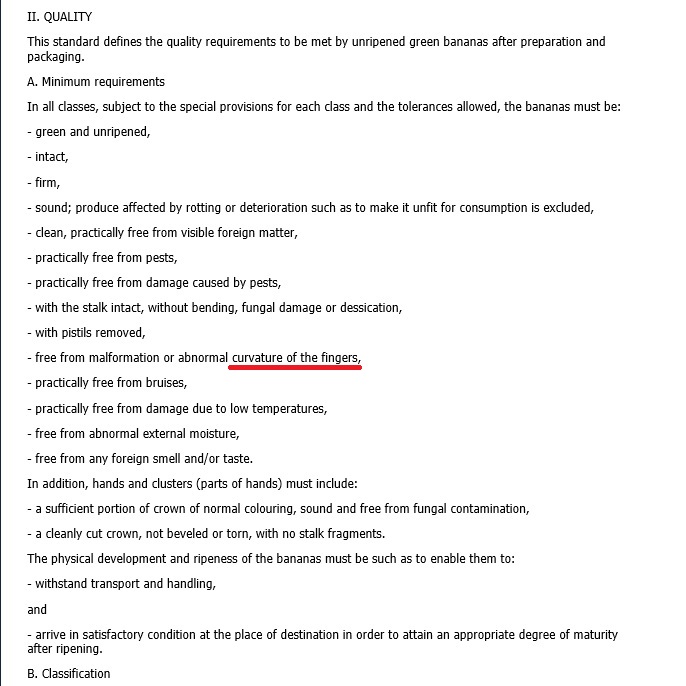
14. Banana curvature concerns are not just an EU thing or a packing thing. There are curvature guidelines in the US and this tends to determine if the bananas end up in retail. 
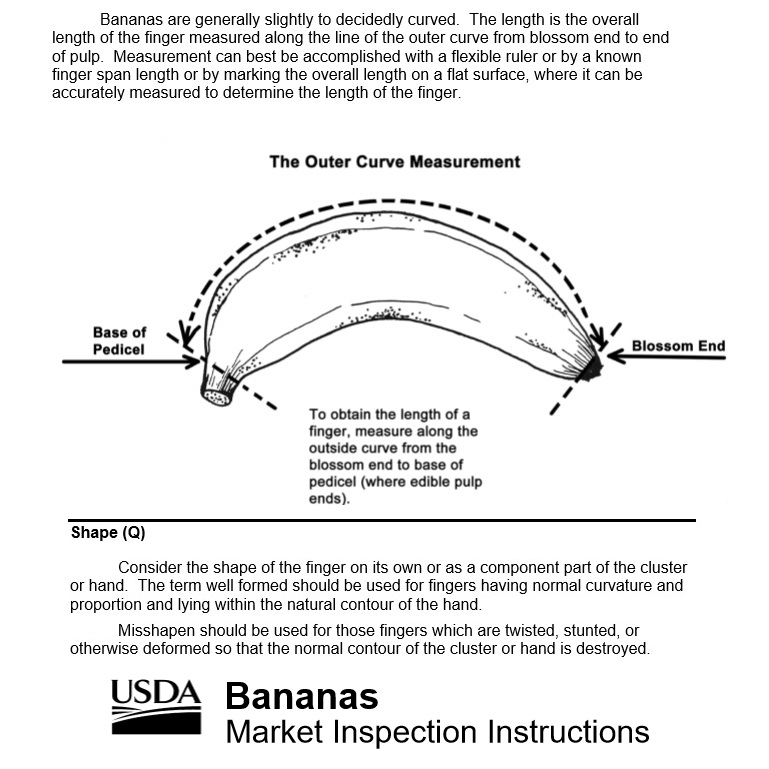
15. I suspect that is because the US and the UK have something in common.
Their citizens have historically been quite picky about what their fruit and vegetable look like.
Their citizens have historically been quite picky about what their fruit and vegetable look like.
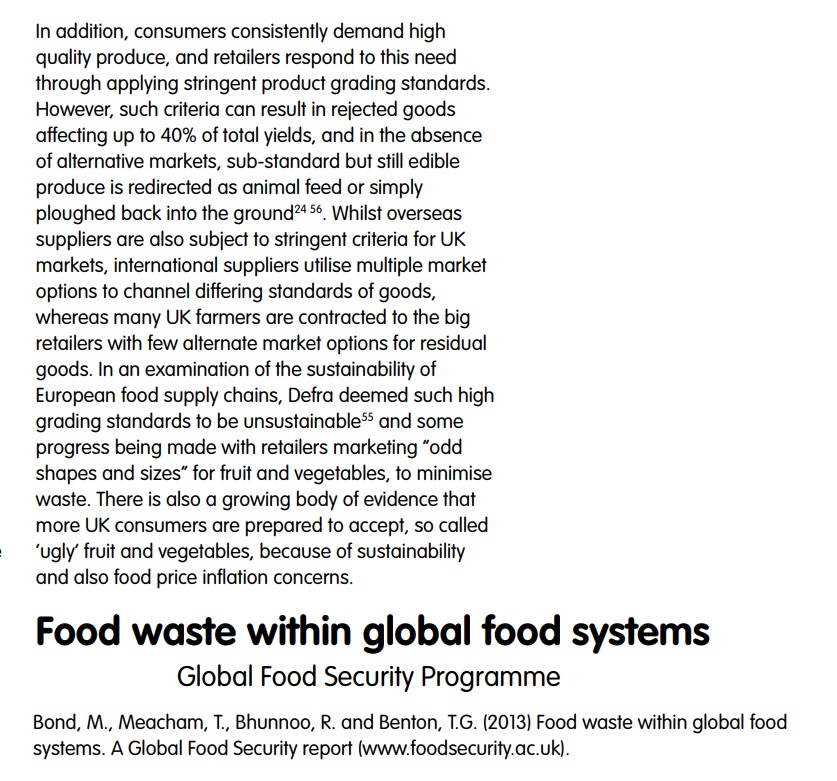
16. Quality standards in the UK mean that strawberries can be rejected for reason of size, and Apples can be rejected because they are not red enough. 
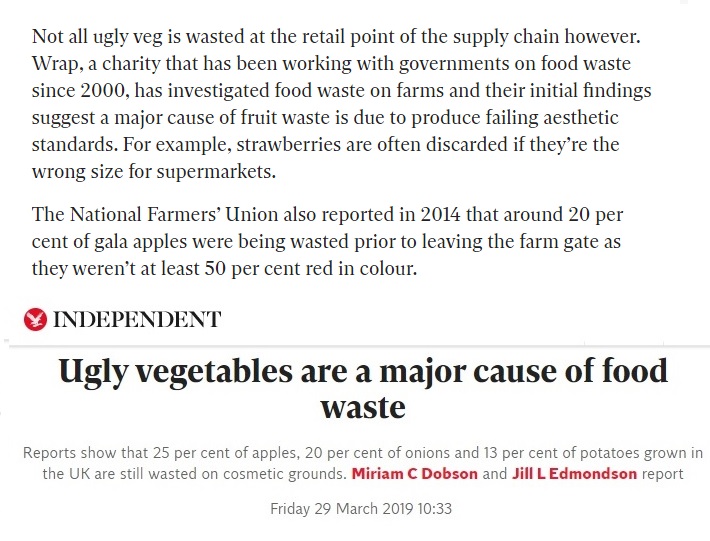
17. This has improved in recent years, with the government requesting that supermarkets reduce their cosmetic standards and campaigns to encourage people to buy ugly fruit. 
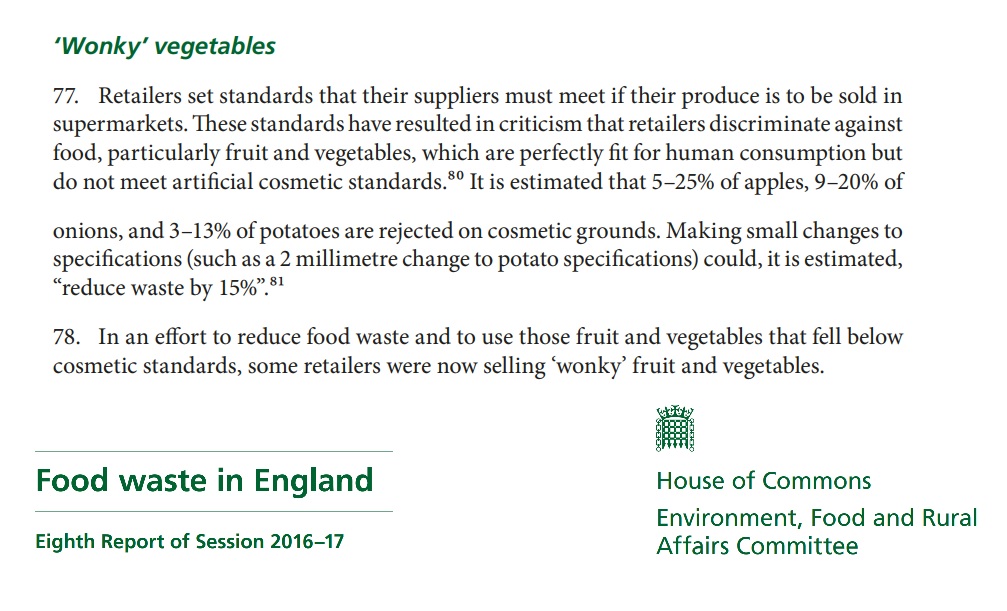
18. So, let’s be clear, there were already quality standards in the supply chain before there was ever any regulation. 
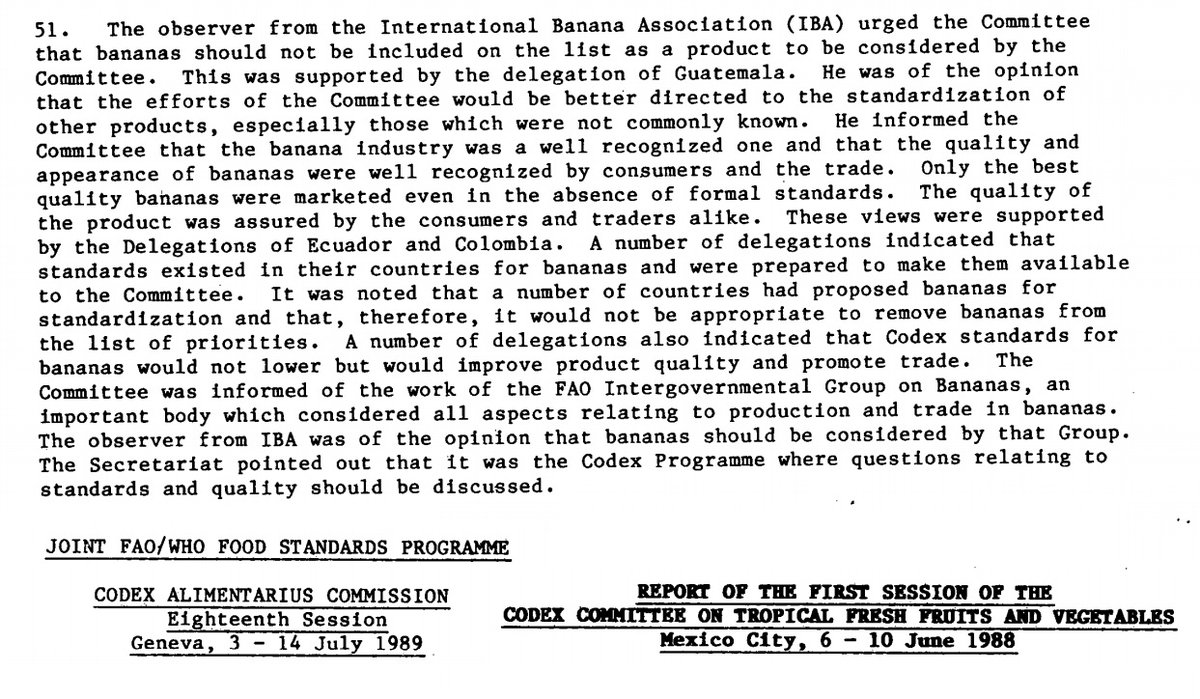
20. And had the regulation not been passed, the supermarkets would have had standards to ensure that ugly fruit wasn’t left rotting on the shelf. 

21. Getting ugly and damaged fruit back into our shops isn’t going to be as easy as some would have you believe.
https://twitter.com/FantaAlexx/status/1313042617693859840
23. The fact remains, nobody had a problem with our cosmetically perfect Apples, or Onions, but once we got together with some Europeans and tried to set a better definition of the Mexican shape proposal, suddenly the loss of bent bananas became a major issue.
24. Because that's what our partisan press wanted when they pushed their agenda.
https://twitter.com/FantaAlexx/status/1313042625247748096
25. It was a convenient line for the intellectually lazy careerists.
26. Ironically, in 2020 the European Union is the most powerful entity in the Codex Alimentarius, and the way they were able to shape the banana rule was an example of that influence.
27. Welcome to Brexit.
/End
/End
• • •
Missing some Tweet in this thread? You can try to
force a refresh


